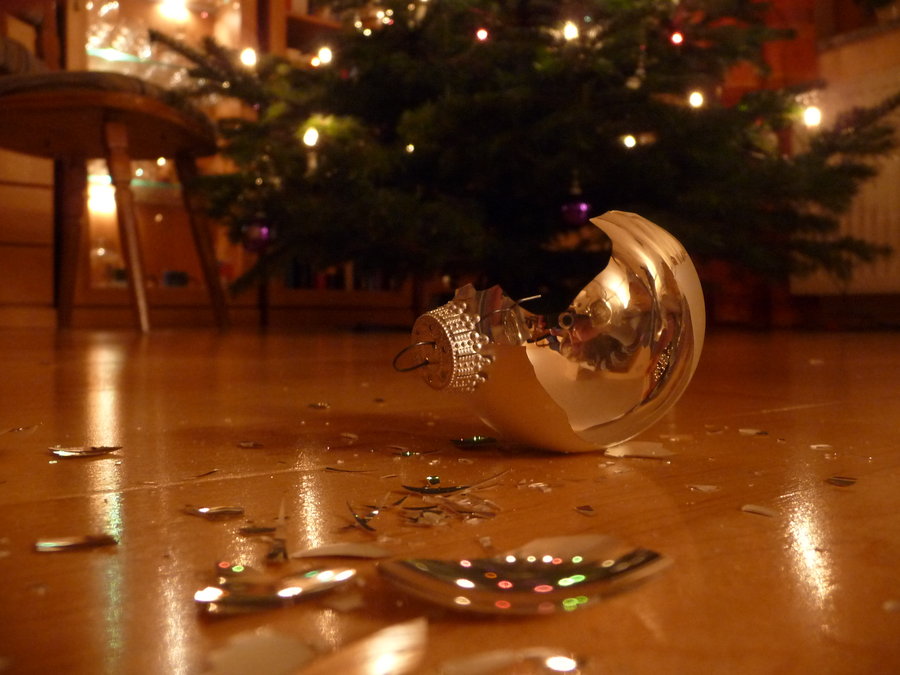
There are some Christians who are adamantly opposed to celebrating Christmas; anything doing with Christmas. If you don't believe me, you can read this in full and you will understand. (these words do not come from the Holy Bible). In addition to this, there are other men and women who speak in God's name on YouTube and do not celebrate Christmas. These people believe the celebration of Christmas has become desecrated. Perhaps the biggest reason as to why some Christians do not celebrate Christmas is because it is a "pagan" holiday, though there is much evidence to the contrary. For argument's sake, though, I am going to address Christmas as if it were originally a pagan holiday. In this context, can a Christian celebrate Christmas?
When it comes to Christians celebrating Christmas...they can AND God's Word gives them permission to do so.
My reasoning is primarily founded on the writings of Paul. He wrote to Christ's followers in Collosi that because they have spiritual fullness in Christ they should "not let anyone judge [them] by what [they] eat or drink, or with regard to a religious festival, a New Moon celebration or a Sabbath day" (Collosians 2:16). As Christmas, based on its supposed pagan origins, was originally a celebration held on the Earth's darkest day of the year, the winter solstice, Paul would have likely considered it a religious festival surrounding a phase of the night sky, so it would have applied to what Paul was describing. Paul further writes that any celebration having to do with paganism has no power over a follower of Christ, because "since you [Christ's followers] died with Christ to the elemental spiritual forces of this world [those from pagan belief], why, as though you still belonged to the world, do you submit to its rules 'Do not handle! Do not taste! Do not touch!'? These rules, which have to do with things that are all destined to perish with use, are based on merely human commands and teachings" (Collosians 2:20-22). Here Paul is writing that when people of this world tell you, as a follower of Christ, "Stay away from that, because it's origins are wicked and detestable," you do not have to follow what they say, because these are merely human commands not from God. Nothing from this world, no object nor any celebration, has the power to make anyone saved by Chirst unclean or unrighteous in God's eyes. As Paul writes, "I am convinced that neither death nor life, neither angels nor demons, neither the present nor the future, nor any powers, neither height nor depth, nor anything else in all creation, will be able to separate us from the love of God that is in Christ Jesus our Lord" (Romans 8:38-39). We can celebrate Christmas, knowing nothing about it will be able to keep us from God's love; the love He gave on the first Christmas.
As to the way people can celebrate Chistmas, Jesus Himself says that this too cannot defile a person. Taking one of the most common and long lasting Christmas traditions, the eating of the Christmas turkey, Jesus says that eating what can be considered unclean food will not desecrate a follower of Christ. In Matthew chapter 15 Jesus spoke with a group of Pharisees who asked Him, "Why do your disciples break the tradition of the elders? They don’t wash their hands before they eat!" which was to say the Desciples were eating uncleanly (Matthew 15:2). Jesus responded to them, "You hypocrites! Isaiah was right when he prophesied about you: 'These people honor me with their lips, but their hearts are far from Me. They worship Me in vain; their teachings are merely human rules.'" (Matthew 15:7-9). Jesus then called the attention of everyone who was there listening, and He said to them, "Listen and understand. What goes into someone’s mouth does not defile them, but what comes out of their mouth, that is what defiles them" (Matthew 15:10-11). Therefore it is not what we eat, such as Christmas cookies, that can desecrate us, but it is what we say that can defile us. This is why it is written "Everyone who calls on the name of the Lord will be saved," for it is what is spoken from the body that matters more than what goes into it (Romans 10:13).
The greeting of tomorrow is Merry Christmas, which roughly translates to Joyfully Celebrate Jesus' life, and many people will speak this proudly to their family and their neighbors and even to everyone they meet. Anyone who speaks this knowing that Christ's coming is the reason for their salvation, is a follower of Christ. No one need feel condemned for celebrating Christmas. It was on that first Christmas night, on whatever day it may have been, that angels came down to lowly sheppherds and gave them good news for all people (Luke 2:10). From a Biblical perspective, all people in Christ have received His permission and the liberty to celebrate Christmas however they please. With this freedom, though, comes a caution, because some forms of celebration yield good fruit and some forms yield bad fruit. As it is with people, "every good tree bears good fruit, but a bad tree bears bad fruit. A good tree cannot bear bad fruit, and a bad tree cannot bear good fruit" (Matthew 7:17-18). Celebrate Christmas one and all, if you please, and may I request that you do so focusing on who it is that gives us reason to celebrate anything good and pleasing.
Sources
No comments:
Post a Comment